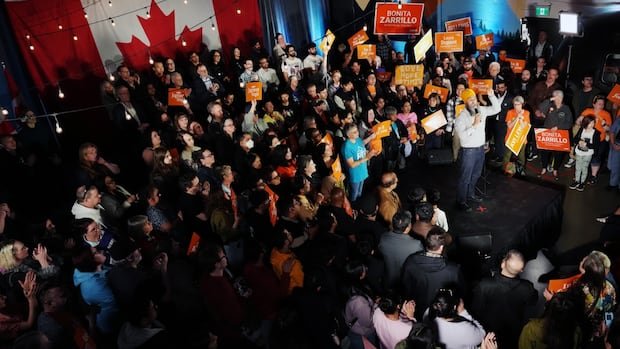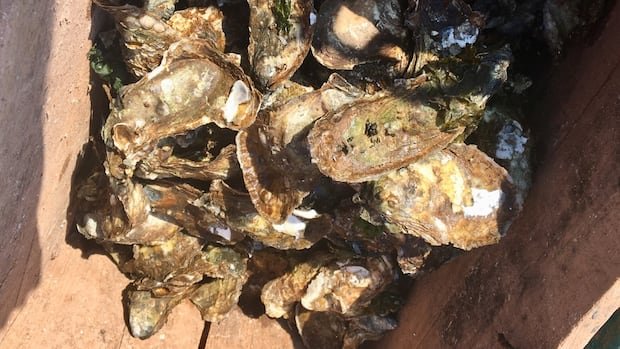As the federal government fights TikTok in court over Ottawa’s order to close its Canadian offices, Canada’s industry minister says families should make their own decisions about whether to continue using the app.
“Ultimately, that’s a choice that people have to make with their eyes wide open,” François-Philippe Champagne said.
As for what he tells his own family? I won’t share the champagne.
“I don’t want to give advice from my personal experience in the sense that it’s a broader topic… it’s like if you ask me about my eating habits, well, they may be right for me and my family,” he said.
“My personal experience or risk tolerance… may be very different than other people.”
Champagne made the comments in a wide-ranging year-end interview with The Canadian Press. The interview was conducted on December 12, before the surprise resignation of former Finance Minister Chrystia Freeland raised questions about the fate of the Liberal government. Champagne, who has been Industry Minister since 2021, remained in office after a cabinet change on December 20.
In November, the federal government said TikTok should shut down its operations in Canada after a national security review of the Chinese company behind the social media platform, although the app itself would remain available to Canadians.
The company lodged a challenge in December, arguing in the Federal Court that the decision was “unreasonable” and “prompted by improper ends.”
In the interview, Champagne said companies are free to launch “a legal challenge if they wish, but that will not detract from my first job, which is to protect the national security of Canadians.”
He declined to specify the deadline for the company to conclude operations.
Privacy and security concerns around TikTok and its China-based parent company ByteDance Ltd. have focused on Chinese national security laws that require organizations in the country to assist with intelligence gathering. Ottawa has not detailed the specific national security reasons behind the closure order.
The review did not address the question of whether the app should be banned, Champagne said.
“There is a big difference between using an app and activities that can be done in the field,” he said.
Champagne said the focus of the government order was “with respect to activities conducted by TikTok at its offices in Canada.”
When asked if that means there are no national security concerns about Canadians using the app or that the order simply didn’t consider that question, Champagne responded: “under the law, my jurisdiction is with respect to the activities carried out in Canada by a foreigner”. entity… That’s why I say there is a difference between an application and the activities carried out by employees in Canadian offices.”
Champagne said people should listen to the advice “given by law enforcement agencies both in Canada and abroad to make an informed decision for themselves or their children, if they really want to use these platforms.”
In May, David Vigneault, then director of CSIS, said he would not personally recommend using the app.
TikTok wasn’t the only national security issue involving a high-profile Champagne company this year.
In September, the Liberal government announced a $2.14 billion loan to Ottawa-based satellite operator Telesat, which is launching a constellation of low-Earth orbit satellites that will be able to connect the most remote areas of the country to broadband internet. .
The Conservatives turned to American billionaire Elon Musk, who said he could provide connectivity for less than half that amount.
While Telesat said the trade on Musk’s national”. “
Musk has become an increasingly controversial and political figure in recent years. Musk, a supporter of incoming US President Donald Trump, has been tapped to co-lead a new “Department of Government Efficiency” and is emerging as a political force ahead of the presidential inauguration.
Trump has also caused turmoil in Canada’s federal and provincial governments with his promise to impose 25 percent tariffs. He has also made repeated references, usually dismissed as jokes, about Canada becoming the 51st state. Meanwhile, Musk recently called Prime Minister Justin Trudeau an “insufferable tool” in a post on X.
When asked if his national security concerns were about Starlink and Musk himself, Champagne responded: “I’ve met Elon. No, I think it’s more about favoring a Canadian champion. It’s not about the others, it’s It’s about us… we have the opportunity. have one of the largest companies in terms of satellite communications.”
He noted the need for secure communications in the north.
“We know that having secure communications in the Arctic and the North will be crucial for national security and when it comes to aviation, with shipping in the Northern Passage,” he said. “It is important to have sovereignty when it comes to data and data links that may be used in the future.”
While telecommunications has always been a pillar of the industry minister’s portfolio, a big part of Champagne’s focus has been on artificial intelligence: both the promise it holds for Canadian businesses and the need to implement regulations to contain its dangers. .
In 2022, Champagne introduced AI Bill C-27, targeting “high-impact” AI systems. The government later proposed amendments to the bill, including a definition of “high impact,” which would include systems used in law enforcement, healthcare, or employment-related decisions.
But it has not yet become law; Critics said the government was initially slow to move through the parliamentary process as the Liberals prioritized other internet regulation laws.
Once it reached the committee for a study, it became deadlocked in the clause-by-clause process that has dragged on since April and seen Liberals and Conservatives accuse each other of obstructionism.
Champagne says he has been in contact with opposition parties to try to get the bill passed.
“There have been discussions with the parties to say, okay, how can we come together and deliver something that may not be perfect, but would be better than what we have today?”
He described those discussions as a “work in progress.”
“We started from a base that was more political, so far something that I hope we can go beyond political lines.”
Regulating AI is part of building trust in the technology, something Champagne says is necessary to turn AI into the “holy grail of productivity.” Champagne also introduced a voluntary industrial code of conduct and in November launched a research center that will study the dangers posed by artificial intelligence technology.
“And to build trust, you need guardrails, you need a framework. And when you have trust, there will be greater adoption, which will lead to greater innovation. So it really is from fear to opportunity,” he said.
“If you and I were to go out on the street today, I think there’s no telling how many people would think AI will be a beneficial force for humanity.”
This report by The Canadian Press was first published Jan. 3, 2025.








